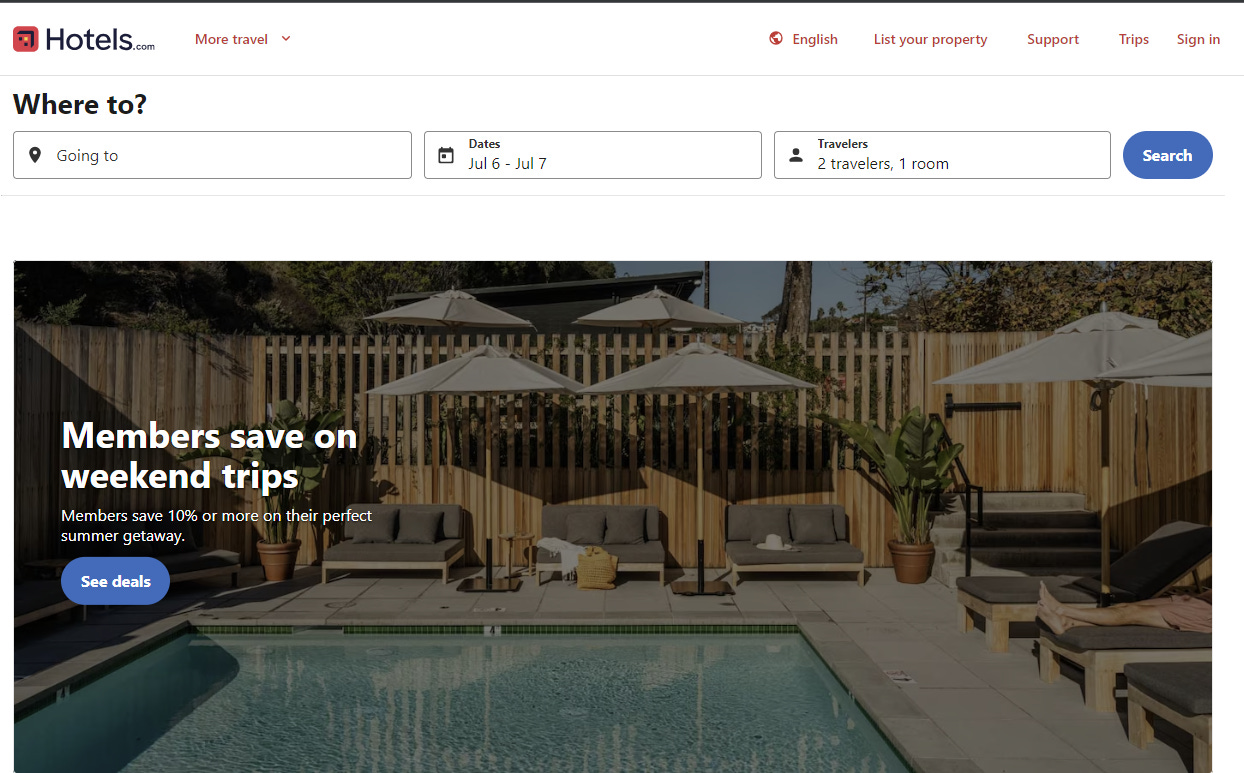Expedia Stock Analysis & Deep Dive
A rare find: A healthy and growing business for an EV/FCF of only 6.6
I am sure that most of you know Expedia from booking hotels or flights. Expedia Group is the second-largest online travel agency behind Booking. Expedia is headquartered in Seattle, US, and employs 16,500 people. Half of these employees work in technology-related jobs.
The company was founded as a division of Microsoft in 1996 and has since been in multiple hands, most recently IAC before the spin-off in 2005. Expedia itself spun off Tripadvisor in 2011. Expedia Group owns the following booking portals: Expedia.com, Hotels.com, Vrbo, Travelocity, Hotwire.com, Orbitz, Ebookers, CheapTickets, CarRentals.com, Expedia Cruises, Wotif, and Trivago.
The focus of Expedia Group is on the top three portals, which are Expedia, Hotels.com, and Vrbo. Expedia offers everything from rooms to flights and rental cars.
Hotels.com is focused (as the name already states) on hotels:
Vrbo (short for Vacation Rental By Owner) is similar to Airbnb in the sense, that it offers vacation rentals compared to standard hotel rooms. Just as Airbnb, Vrbo offers ordinary people an easy platform to rent out their property. The main difference is, that Vrbo focuses on listing only complete properties and not single rooms in a flat or apartment. According to some online reviews, Vrbo is cheaper and has better customer service than Airbnb. On Trustpilot, both companies have very bad reviews. Vrbo gets a score of 1.9 out of 5, while Airbnb only gets 1.3 out of 5.
The largest competitor is Booking, followed by Airbnb and Trip.com
The industry
Global travel is a great sector to be in. Historical growth (with the exception of Covid) has been and will be ca. 10% p.a. More and more purchasing is done online and companies such as Expedia are the big gainers of this trend. There is still a rebound effect of the Covid related lockdowns and even though inflation is high, people don’t cut back on travel-related spending. To quote the CEO:
“Overall, we are pleased to see broad travel demand remain strong in what appears to be a more structural post-pandemic environment of people prioritizing travel above most other categories of spend. This has held up despite inflation and recession worries and even more recently, bank system concerns. While economists continue to debate potential recession outcomes and clearly, many unknowns are still out there, consumers have so far shaken it off and continue to travel.”
The Business
Expedia’s business can be broken down into three parts:
Merchant Model: Customers book through Expedia their accommodation, airline seats, or rental cars. Expedia does not bear any inventory risk since the room or rental car belongs to a third party. Customers usually pay upfront and Expedia acts as the merchant of record. This makes up the majority of the revenues with a 66% share.
Agency Model: This mostly applies to airline seats. Expedia acts as the agent and passes on the booking to the provider of the service. Expedia receives commissions and ticketing fees. This is about one-quarter of the overall business.
Advertising Model: Expedia offers advertisers access to traffic through media and advertising offerings across several transaction-based websites. This adds 8% to the overall revenue.
If you want to read the full article and learn about the management, the composition of the segments, takeovers, risks, fundamental analysis, and a conclusion please subscribe and support my work. To all existing subscribers: Thank you for your support and enjoy the rest of the article!
Keep reading with a 7-day free trial
Subscribe to 41investments’s Substack to keep reading this post and get 7 days of free access to the full post archives.








